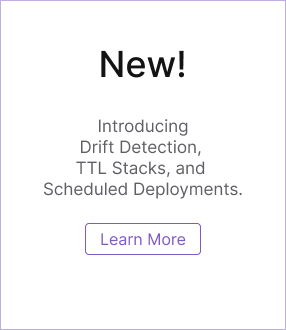Pulumi & Kubernetes guides

Pulumi Crosswalk for Kubernetes is production-ready Kubernetes for teams. Work together to deliver Kubernetes to any cloud, AWS, Azure, Google Cloud, or private.
If you are just getting started with Pulumi and Kubernetes, the Get Started guide is a better place to start.
Playbooks for Kubernetes
Manage production-ready infrastructure leveraging hosted Kubernetes offerings such as Amazon Elastic Kubernetes Service (EKS), Azure Kubernetes Service (AKS), or Google Kubernetes Engine (GKE).
Discover solutions to the hardest Kubernetes problems to avoid mitigating pitfalls around infrastructure, security, governance, reliablity, and maintainability of the cluster, it’s workloads, and underlying resources.
Get started with the playbooks to manage Kubernetes in production with your team.
Making Kubernetes Accessible to Everyone
Pulumi exposes 100% of the Kubernetes API in pulumi/kubernetes,
which means you use modern programming practices to reduce YAML/JSON complexity,
repetition, and encapsulate workloads effectively.
Through the new Crosswalk library extensions, the authorship experience has improved to make the API more accessible and approachable to operators and developers.
By reducing the Kubernetes API syntax used, including sane defaults where possible, and maintaining idiomatic Kubernetes, it is easier to work with the API and deploy resources. Crosswalk revamps the Kubernetes API resource composition, but produces the exact semantic API output type. The ability to drop into and inject a given API type’s raw spec is maintained through out.
Get started with pulumi/kubernetesx to manage Kubernetes
workloads using constructs built for everyone.
Query for Kubernetes
Maintaining and understanding Kubernetes clusters requires coordination and delivery of continuous changes. The API surface area is complex and highly disjointed when you want to make sense of what is taking place in the cluster, and why it is occuring.
Common choices for these assessments include a mix of kubectl
and client-go, and require the user to form manual joins
across resources, and perform a reactive series of queries to understand what is taking place.
To gain detailed insights, we’ve released a new tool called Pulumi Query that helps you understand your clusters passively or in real-time. By exposing Kubernetes through a library of streaming queries, it becomes easy to write apps that can tail API resources, discover distinct versions of a given Pod, or even inform you of which Services are publicly exposed to the Internet.
Get started with pulumi/query to understand Kubernetes
clusters and workloads through a new lens.
Pulumi Kubernetes Operator

The Pulumi Kubernetes Operator is an extension pattern that
enables Kubernetes users to create a Stack as a first-class API
resource, and use the StackController to drive the updates of the Stack until
success.
Deploying Pulumi Stacks in Kubernetes provides the capability to build out CI/CD and automation systems into your clusters, creating native support to manage your infrastructure alongside your Kubernetes workloads.
Get started with the Pulumi Kubernetes Operator in your continuous delivery pipelines.
Join the Community
With Pulumi’s unique approach to open source infrastructure as code, you’ll focus more on code and business logic, and less on resource templates, YAML or DSL configuration languages.
Leverage Pulumi’s collection of open source tools, Kubernetes frameworks, continuous delivery integrations, and playbooks to help you deliver production-ready Kubernetes.
Join the Pulumi team and thousands of practioners in our Community Slack for questions and support, follow us on Twitter for our latest news, and subscribe to our YouTube channel to access educational content.
Frequently Asked Questions (FAQ)
See the FAQ for more details.
Thank you for your feedback!
If you have a question about how to use Pulumi, reach out in Community Slack.
Open an issue on GitHub to report a problem or suggest an improvement.
